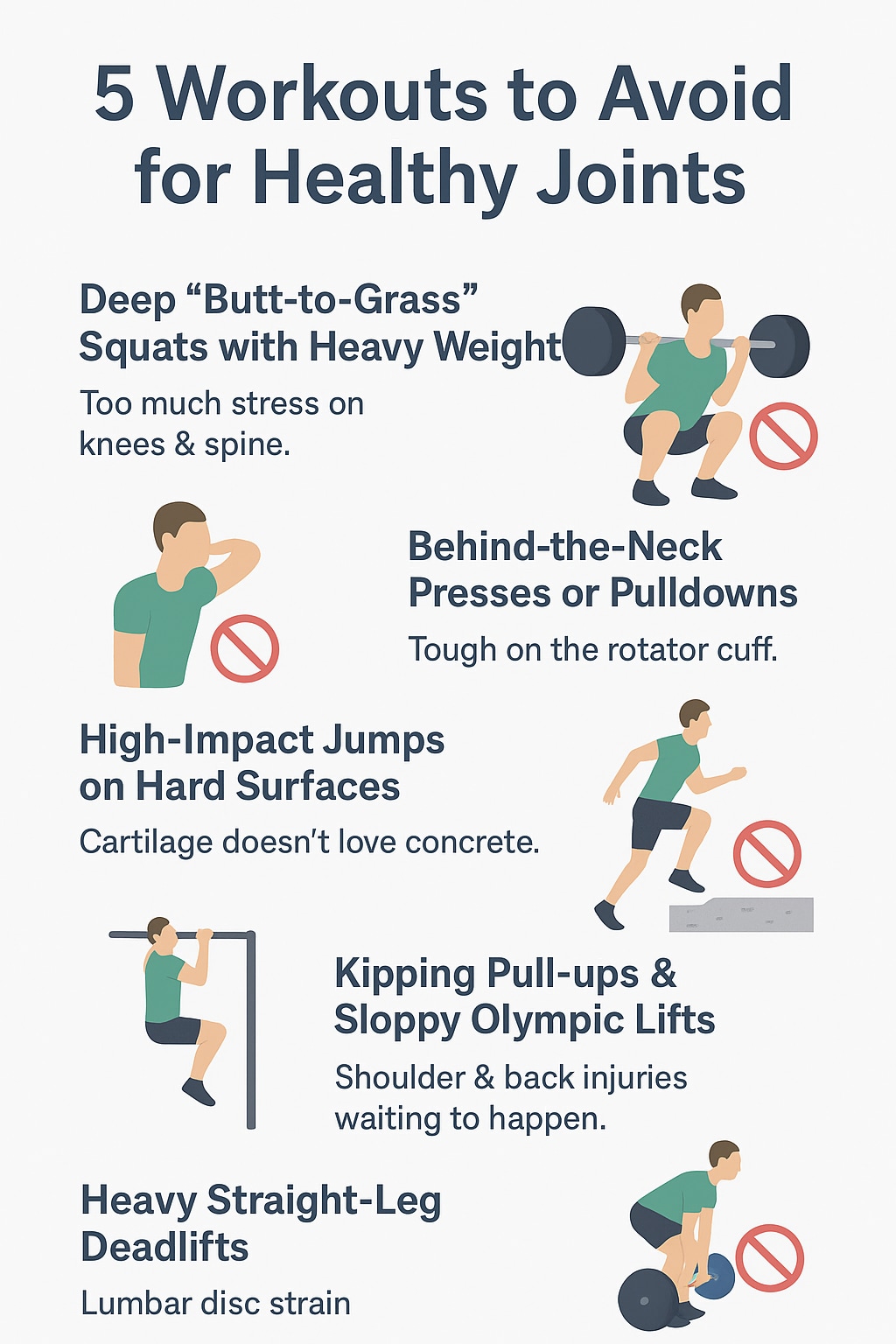Workouts are a part of daily life, non-negotiable for your health. As per the World Health Organization, people between 18 to 64 years should do at least 150 minutes of moderate-intensity physical activity throughout the week. If your physical activity does not meet this standard, then you may have a sedentary lifestyle.
 Avoid deep squats to protect your knees. (Picture credit: Freepik)
Avoid deep squats to protect your knees. (Picture credit: Freepik)
But on hindsight, you shouldn’t overexert yourself either. Pushing past your limits, without paying attention to what your body can endure, may put you in danger. While sweating it out to burn calories and stay in shape is great, some exercises can put excessive pressure, particularly on your joints. Hardcore exercises may have your joints moving vigorously, potentially setting you up for long-term injuries.
Florida-based Orthopaedic sports surgeon Dr David Abbasi addressed this issue of overdoing exercises and shared in an Instagram November 7 post about 5 workouts he personally won’t recommend because they may result in injuries.
5 workouts to avoid
The doctor emphasised, “Not every ‘hardcore’ move is healthy for your joints.” This means, every exercise which looks intense doesn’t mean it’s good for your body. Certain movements can put excessive strain on the knees, shoulders and spine. Instead of bagging gains, you may be getting seriously injured.
 Safeguard your joint health by exercising caution when you do these workouts. (Picture credit: Made with GPT)
Safeguard your joint health by exercising caution when you do these workouts. (Picture credit: Made with GPT)
Based on his experience and the injuries he sees in his clinic, Dr Abbasi cautioned about these exercises:
Deep “butt-to-grass” squats with heavy weight: Too much stress on knees & spine.Behind-the-neck presses or pulldowns: tough on the rotator cuff.High-impact jumps on hard surfaces: cartilage doesn’t love concreteKipping pull-ups and sloppy Olympic lifts: Shoulder and back injuries waiting to happen.Heavy straight-leg deadlifts: Lumbar disc strain.
All these exercises involve extreme ranges of motion, which may even push joints past their natural limits. They also put too much pressure on joints, overloading them sometimes.
The problem also begins if they are not done correctly, since, as the doctor noted, they are hardcore exercises. They require better guidance and proper form to avoid any untoward side effects.
What kind of exercises to prioritise?
The doctor instead suggested following:”Focus on controlled form, joint-friendly range of motion, and smart progressions.”
This means prioritising proper form rather than hyperfocusing on the reps. Do your exercises slowly and steadily. Similarly, choose joint-friendly variations. And lastly, focus on gradual progress.
In the world chasing instant results and glorifying hardcore workouts for the sake of ‘gains,’ Dr Abbasi shared a very important reminder that smart training beats intense training any day.
“Your joints should last a lifetime, train for longevity, not just intensity,” Dr Abassi noted.
Fitness is not only about gains. And if you hyperfixate on gains, resorting to the hardcore route, you have more to lose than gain. These hardcore exercises push the body towards the breaking point. They are not long-term goals. Most of the exercises which the doctor cautioned about are valid. The red flags, such as motion beyond normal points, overloading and excessive strain on joints, all need to be taken seriously. Exercises like deep squats, high-impact jumps, and behind-the-neck presses may appear to be powerful, convincing you to add them to your routine for better results, but you are at a bigger health risk then, if you don’t exercise due diligence with these.
Note to readers: This article is for informational purposes only and not a substitute for professional medical advice. Always seek the advice of your doctor with any questions about a medical condition.

